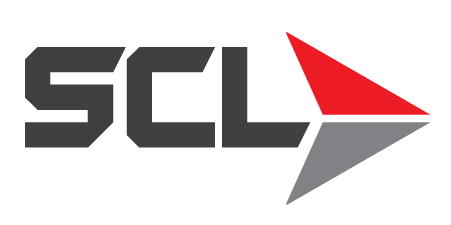Doing More with Less: Strategies to Help Businesses Operating in Crisis Mode

6 Short-Sighted Decisions and Alternative Solutions for the Long Term
The coronavirus pandemic has wreaked havoc on everything from small business owners to entire industries and racial unrest has only further stifled consumer buying across the board.
The gut reaction for SCL customers may be to batten down the hatches – cut costs by buying cheaper products – but now is not the time for status quo, said SCL Vice President of Customer Solutions Dan Dziwanowski. Instead, business owners and operators across the board – from automotive to construction – should try looking at their business in a different way.
“Everyone understands and can relate to the knee-jerk attraction to cheap product, but over a year period, if you’re buying a lower-quality hydraulic oil you’re going to end up using more of it,” Dziwanowski said. “You have to apply that school of thought to every segment of your business right now as every dollar is critical. Do the calculation over time and then see what’s smarter for your fleet, what makes more sense for your operation.”
Here are 6 short-sighted strategies that could end up hurting your business in the long run and some alternative solutions to consider instead:
- Reaction: Buy cheaper oil for fleets.
Better Solution: Buy an oil you can use for multiple applications or engine types.
“We have a lot of customers who just want to buy cheap product right now. They’re coming in and they don’t have a lot of cash flow, so they’re wanting to use cheap oil for the time being,” Dziwanowski said. “When you’re dealing with cheap oil, you have to remember you pay for what you get. You will end up having to change it out more, so it won’t end up lasting as long. In the meantime, your machines are not getting the protection a better product offers either.”
Instead, consolidate the number of products you use with solutions that work for multiple applications. On the heavy-duty engine oil side, for example, a relatively new product called Shell Rotella T4 NG Plus 15W-40 meets specifications for both diesel and natural gas engines.
One product for multiple applications also lowers the risk of human error that could result in significant damage to engine types, Dziwanowski said. “If you have one product that meets two needs, you can consolidate your products, which increases your convenience, lowers your risk of putting diesel into natural gas engines (and vice versa), and ultimately offers greater savings long term.”
- Reaction: Look at purchases as the only way to cut costs and ignore service schedules.
Better Solution: Save costs by re-calibrating service schedules based on OEM specifications.
Especially if you’ve been in businesses for multiple decades, it can be challenging to pull your business out of patterns or schedules you’ve adhered to for years. This is especially true when it comes to service schedules.
“We see a number of customers that change the oil more frequently than what OEM recommends simply because it’s how they’ve always done it,” Dziwanowski said. “If you have a truck with a Cummins EPA 13 ISX 15 engine, for example, and you’re changing it out every 15,000 miles you’re not taking into account that OEM specifications now recommend service every 30,000 miles for normal applications. As far as cost, that adds up quite a bit over a short amount of time. We always recommend SCL oil analysis to maximize your service intervals.”
To calculate exactly how much business can save by optimizing their service intervals, owners or operators can provide a fleet list to SCL experts to cross reference with OEM recommendations. The fleet evaluation will take into account exactly how long each vehicle should (and could) go before undergoing timely and costly service.
- Reaction: Avoid new or different products unless they’re cheaper.
Better Solution: Explore potential cost savings by evaluating OEM product recommendations.
In the same way that businesses often don’t pay close attention to OEM standards with regard to service intervals, the same is true for OEM product recommendations.
“Your OEM specifications usually recommend a couple of different products,” Dziwanowski said. “Some people have been using 15W-40 for decades, but in 2016, heavy-duty OEM started factory filling with 10W-30. That 10W-30 has a greater fuel efficiency, so businesses who are using products based on old OEM recommendations could be missing out on a significant fuel savings long term.”
Over the course of a year, savings associated with oil weight alone can equal about 1% to 1.5% in fuel economy annually.
“That’s a potential savings for trucking companies, equipment companies, fleets, any business with generators or any business with machines that take engine oil,” Dziwanowski said. “They started factory filling OEM with 10W-30 since 2016, but they’ve stated it will work in anything from 2012 or newer, so if that’s you, provide SCL with an equipment list and we can provide recommendations.”
- Reaction: Shop around for the cheapest products, regardless of how many vendors you use.
Solution: Allow SCL to cross reference major brands and negotiate prices to reduce vendors.
It’s tempting – and natural – to shop around to several vendors for the best price on specific products you use. But, overall, consolidating how you do business can greatly impact the soft costs you incur.
According to PurchaseControl.com, the average company spends between $100-$125 to cut just one a purchase order. Consolidating three vendors down to one, for example, can save anywhere from $200-$250 each month.
Unlike most other lubricant and oil distributors, SCL has partnerships with the three major companies – Chevron, Shell, and Phillips 66 – instead of one or two, as is the norm.
“That means we can do the shopping around for you and save you money on purchase orders, save you time by eliminating some of those phone calls and emails,” Dziwanowski said. “A lot of customers may buy engine oil from one vendor, DEF from somewhere else and so on. You can save a significant amount of money month to month and free up some cash flow by utilizing our contacts for a menu of products instead.”
- Reaction: Buy only what you need.
Better solution: Look at bigger package styles that equal savings.
Instead of limiting your spending from month to month, looking at your usage over a year-long period provides a much clearer picture of how you should be buying.
“If you’re buying 10 cases of motor oil – 12-quart cases – that’s 30 gallons a month. You can buy a drum to last you two months and save 25%,” Dziwanowski said. “That applies at every level; you can go from cases to pails, pails to drums, drums to a bulk tank. Every time you move up you’re looking at a 10% to 20% savings. Instead of focusing on pennies every invoice, making your savings annually.”
With larger sizes also come opportunities to reduce waste, as drums typically have up to 2-3 gallons of unused product in the bottom once they’re deemed “empty.” If you’re buying synthetic engine oil, for example, that 2 gallons equals about $44 per month and about $500 per year in wasted product. If a lack of bulk tanks or other equipment is an obstacle, SCL has loaned equipment programs to help,.
- Reaction: Ignore your waste and maintain your ordering schedule.
Better solution: Let tank monitoring to determine your schedule.
Buying bulk tanks not only provides savings on the front end; it also paves the way for savings on the back end. Tank monitoring, available on bulk tanks, eliminates the need for manual inventory checks, and prevents over- or under-ordering.
“You can go to a website and see how much oil is in your tank,” Dziwanowski said. “A lot of customers out there will come to us and say they need oil, but they don’t know how much they need. Tank monitoring gives you the flexibility of ordering just in time, which can be a cash-flow savings, or maximizing your savings depending on the volume you order. More than anything, it removes stress from the equation because when you get down to 30% of your inventory, you can place an order.”
Contact an SCL Consultant today
In a wide range of automotive, industrial and commercial sectors, SCL remains steadfast on its commitment to product and industry knowledge, performance satisfaction and superior logistics. We protect and optimize the machines that keep our country moving. For more information on how we help can help with services including bulk purchasing or managing inventory, contact an SCL expert today.
